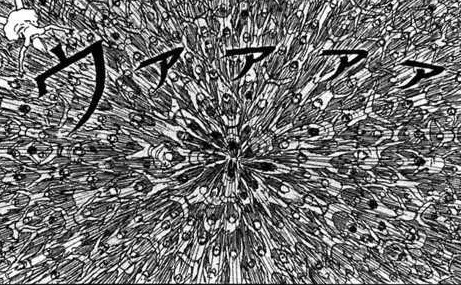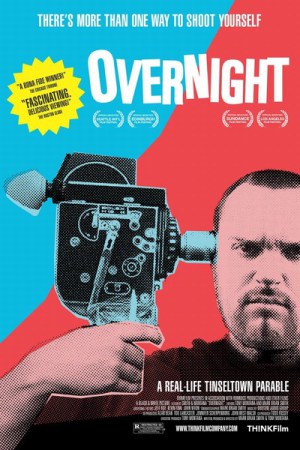 It’s time to put the hand lotion away and face facts: Hiroshima is overrated.
It’s time to put the hand lotion away and face facts: Hiroshima is overrated.
150,000 dead seems like a good start. But think of the cost. Per dollar, the Manhattan Project was the most expensive funeral pyre in history. Concentrating enough U-235 for one small fission bomb cost the United States taxpayer two billion dollars (do the conversion to 2014 money yourself, genius), all for an explosion that was survivable a few kilometers away. It’s safe to say that the Japanese less money building the city than the Americans spent destroying it.
“Now I am become Death, the destroyer of worlds.” I wish I could get Oppenheimer to pad out my resume. He seems like he’d be good at it.
In the past, there were better ways.
During the sack of Urgench, Genghis Khan gave 50,000 Mongol soldiers the task of killing twenty-four Persians each. So 1.2 million would have died. The Great Khan could not split an atom, but he knew that splitting a man’s heart ventricles usually does the job.
Better technology does not linearly scale up to bigger body counts. In fact, the better technology we have, the less we are inclined to do with it. Give a man a machete and he’ll make a pile of severed hands and ears. Give a man a Trident Boat or a MOAB and he gets delusions of being a peacekeeper – and who wants that?
But we can’t eradicate the human race with machetes. So what else is there?
The problem is huge. Seven billion souls, and counting. They exist on the Skeleton Coast and in the Arctic and in the Himalayas. The human virus now fills every ecological niche.
Seven billion piles of shit. How do we clean up this mess? At least Hercules had a broom.
After years of planning and simulation models, let me give you the ideal solution: we need to get people to kill other people, while leaving the killed blind to the fact that they are being killed, and leaving the killers blind to the fact that they are killers.
Every possible problem is overcome. No ethical doubts, no wavering, no defense mechanisms at the level of state, community, or individual. If we achieve this, the human race will be over like night follows day.
Sounds impossible. Maybe it’s already happening. Maybe we’ve got a friend in the Department of Health or WHO, and there’s some new chemical in the water or some new schedule of vaccines that will kill everyone.
It’s possible that this could go undetected. Occasional leaks of information would seem indistinguishable from tabloid fodder. If someone has already set the gears in motion that end the human race, then I salute you, sir. My only regret is that you have made this piece redundant.
But suppose that’s not happening. Where do we go from here?
Many deathists think sterility is the sine qua non of ending the human race. This could be achieved by contaminating the world’s water supply. I would caution them against hope. Sterility will stop new humans from being born – but you’ve still got a lot of humans left alive. So long as they exist, the risk is that they’ll find a way to artificially generate babies, and there goes your ballgame.
What if everyone goes sterile tomorrow? Humans will still exist on earth for another seventy or eighty years. That’s a lot of time for someone to screw something up.
No, I don’t think too much of forced sterility. From the hard deathist perspective it’s a motivational trap – it makes us think we’ve eliminated the human race when we’ve only put a small speed bump in the way.
Actual dying is required.
How about a viral plague? You already know the problems there – they’re obvious, and they’re fightable. You can quarantine a plague. You can inoculate against a plague. Worst (best?) case scenario: a plague devastates the earth, a small country or holdout bars its doors and survives, the plague burns itself out, and then humans repopulate the earth. All you need is a few survivors.
Nanotechnological viruses carry similar problems, with the added issue that nano-scale machines have weaknesses that DNA/RNA viruses don’t. Say what you will about HIV/AIDS (and I say it’s overrated as hell), but at least the HIV retrovirus doesn’t die when you hit them with a jolt of static electricity. And it doesn’t help that we have yet to build one.
Planet-eating “grey goo” is for science fiction novels. It will never exist.
No Comments »
 It’s not the size of the dog in the fight, it’s the size of the wad of cash you put in the fight manager’s pocket so that he “accidentally” crushes an Ambien into the other dog’s morning chow.
It’s not the size of the dog in the fight, it’s the size of the wad of cash you put in the fight manager’s pocket so that he “accidentally” crushes an Ambien into the other dog’s morning chow.
Red sky at night, shepherd’s delight. The nuclear fallout will create cool mutations in your sheep.
Never doubt that a small group of thoughtful, committed people can change the world. But only if a small group of rich people agree with them.
Never doubt that a small group of thoughtful, committed people can change the world. Other than natural disasters, war, famine, plague, asteroid impacts, rinderpest, gamma ray bursts, economic externalizations, Black Swan events, the hand of God, large groups of thoughtful committed people, small groups of thoughtless committed people, small groups of thoughtful uncommitted people, and alligators in the sewers, they’re the only thing that ever has.
Measure twice, cut once, cut once more, read instructions, curse, fling random tool on the garage floor, curse again as it is the exact next tool you needed, give up.
Good things come in small packages, which are then broken by mailmen trying to jam it into your mailbox instead of ringing at your door.
You’ll breed more flies with honey than with vinegar.
You miss all the shots you don’t take. The same cannot be said for the man on the grassy knoll.
Absence makes the heart grow fonder. Just so long as you never return from that absence.
Before you judge a man, walk a mile in his shoes. You’re now a mile away from him, and you have his shoes.
The hand that rocks the cradle rules the world. Then Rupert Murdoch looks up and says “is the photo op over? No, seriously, can I go now? Babies are gross.”
No Comments »
 It doesn’t take much rope for some people to hang themselves. “Overnight” is a 2003 documentary about someone who hung himself with six inches of empty air. Troy Duffy was a bartender in LA with a screenplay, and he received an opportunity that hardly ever happens to bartenders in LA with a screenplay – a major production and distribution deal from Harvey Weinstein. Thrilled, he immediately hired a couple of local filmmakers to make a documentary about his assured rise to fame and riches. They ended up capturing a Hindenburg disaster on film.
It doesn’t take much rope for some people to hang themselves. “Overnight” is a 2003 documentary about someone who hung himself with six inches of empty air. Troy Duffy was a bartender in LA with a screenplay, and he received an opportunity that hardly ever happens to bartenders in LA with a screenplay – a major production and distribution deal from Harvey Weinstein. Thrilled, he immediately hired a couple of local filmmakers to make a documentary about his assured rise to fame and riches. They ended up capturing a Hindenburg disaster on film.
When aliens land and ask us for positive reasons why we shouldn’t be assimilated, I don’t there’ll be many fingers pointing at Troy Duffy. Arrogant, belligerent, with a tendency for insulting the big-name actors that he’s supposed to be schmoozing, he’s never made a movie before, and hasn’t even been to film school. He brags about showing up to production meetings hungover and wearing last night’s trousers. He has one talent: malapropism. “We’re a cesspool of creativity!” he exclaims. Elsewhere, he schools a naysayer: “Get used to my film career, ‘cuz it ain’t going anywhere.”
His boorish antics land him on Hollywood’s collective shit-list, and soon he receives a call from Weinstein. His film has been put into dreaded “turnaround” mode, halting production until a new deal can be negotiated. When a new offer to pick up the film emerges, its financing is very, very thin. And when the film is made, nobody wants to distribute it.
Another plot thread involves Duffy’s band, The Brood, who received a label deal to score the soundtrack to his film. His bandmates soon come to suspect that Duffy is not sharing his sudden windfall equally. At first Duffy says they don’t deserve a share of the royalties. Then, he moderates his position. “You do deserve it, but you’re not gonna get it.”
Things go from disaster to disaster, with Duffy’s family, co-producers, and bandmates going along for the ride (it’s not their first time dealing with this guy. You think they suspect there’ll be rubbernecking opportunities aplenty). As his projects steadily burn down, there’s endless scenes of Troy either partying or being a jackass. No doubt he fancies himself a work-hard-play-hard type, like Howard Hughes. But he hasn’t actually achieved anything yet. He’s like a runner who wants the champaign popped at the 900m line.
The documentary is fairly narrow in focus. We don’t see the critical moment where Duffy negotiates the film deal in the first place. And it doesn’t delve into the conspiracy theories about why Weinstein took a chance with Duffy, even if only for a figurative moment. It’s been speculated that he never planned to make Duffy’s film, that The Boondock Saints was destined for turnaround since day one, and it was just a PR stunt for his company. Yank a peasant out of the mud, and put a crown on his head. Then, when the cheering crowds are gone, quietly take it away. We don’t know if this is what happened. It’s certainly about as plausible as Weinstein trusting Duffy with millions of his dollars.
Ironically, Duffy’s film has proven to be massively popular on DVD. Unfortunately, he signed a contract that does not make him party to DVD profits.
No Comments »
 It’s time to put the hand lotion away and face facts: Hiroshima is overrated.
It’s time to put the hand lotion away and face facts: Hiroshima is overrated.

